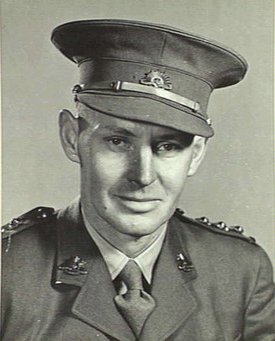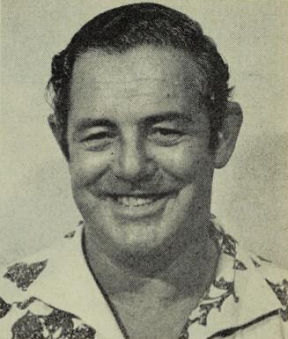Related Research Articles

The prehistory of Papua New Guinea can be traced to about 50,000–60,000 years ago, when people first migrated towards the Australian continent. The written history began when European navigators first sighted New Guinea in the early part of the 17th century.

Transport in Papua New Guinea is mainly based around roads and air travel. It is in many cases heavily limited by the mountainous terrain and copious amount of rainfall and frequent severe weather occurring in many locations, such as Lae. The capital, Port Moresby, is not linked by road to any of the other major towns and many highland villages can only be reached by light aircraft or on foot.
Sir John Douglas Guise was a Papua New Guinean politician who served as the first governor-general of Papua New Guinea after the country's independence from Australia in 1975. Prior to the independence itself, Guise was a vocal advocate for a peaceful secession from Australia.
Peter Lawrence was a British-born Australian anthropologist and pioneer in the study of Melanesian religions.

Brigadier Sir Donald Mackinnon Cleland, was an Australian soldier and administrator.
Nicholas Brokam was a Papua New Guinean politician. He was a member of the Legislative Council and House of Assembly between 1961 and 1968, also serving as Under-Secretary for Economic Affairs and Information and Extension Services.
George Kenneth Whittaker was an Australian optometrist, planter, soldier and politician in Papua New Guinea.

General elections were held in the Territory of Papua and New Guinea between 15 February and 15 March 1964. They were the first elections in the territory held under universal suffrage. Voter turnout among enrolled voters was 65%.
William Charles Groves was an Australian educator and public servant. He served as Director of Education in Nauru and Papua and New Guinea between 1937 and 1958, also serving on the Legislative Council in Papua and New Guinea as part of the role.

Donald Barrett was an Australian planter, army major, politician and sports coach in the Territory of Papua and New Guinea. He served as a member of the Legislative Council and House of Assembly in two spells between 1951 and 1968.

John Keith McCarthy was an Australian public servant in the Territory of Papua and New Guinea. He rose to become Director of Agriculture, also serving as a member of the Legislative Council and House of Assembly.
John Herbert Jones was an Australian public servant. He spent most of his career in Papua and New Guinea, serving as an official member of the Legislative Council between 1951 and 1953.
Ephraim Jubilee was a Papua New Guinean educator, magistrate and politician. He was a member of the Legislative Council from 1961 until 1964.
John Lester Chipper was an English-born Papua New Guinean businessman and politician. He served in the Legislative Council in two spells between 1959 and 1964 and headed the local council of Rabaul for several years.
Oala Oala-Rarua was a Papua New Guinean educator, civil servant, trade unionist, politician and diplomat. He served as a member of the House of Assembly and Assistant Minister for the Treasury between 1968 and 1972, later becoming the first Lord Mayor of Port Moresby and High Commissioner to Australia.

Claude Champion was an Australian public servant in Papua New Guinea. He served as a member of the Legislative Council in two spells between 1951 and 1961.
John Bexley Sedgers was an Australian businessman. He spent much of his career in the Territory of Papua and New Guinea, where he served in the Legislative Council from 1951 to 1954.
Basil Edward Fairfax-Ross was an Australian businessman who spent much of his career in the Territory of Papua and New Guinea. He served as a nominated member of the Legislative Council from 1951 to 1963.

Sir Pita Simogun was a Papua New Guinean policeman, farmer and politician. He served as a member of the Legislative Council from 1951 to 1961 and then as a member of the House of Assembly from 1964 to 1968, during which time he was also Parliamentary Under-Secretary for Police.
Vin ToBaining was one of the first six elected indigenous members of the colonial-era Legislative Council of Papua and New Guinea, between 1961 and 1963. Subsequently, he was involved in the formation of the Pangu Party in 1967, which went on to form the government of Papua New Guinea (PNG) when the country became independent in 1975.